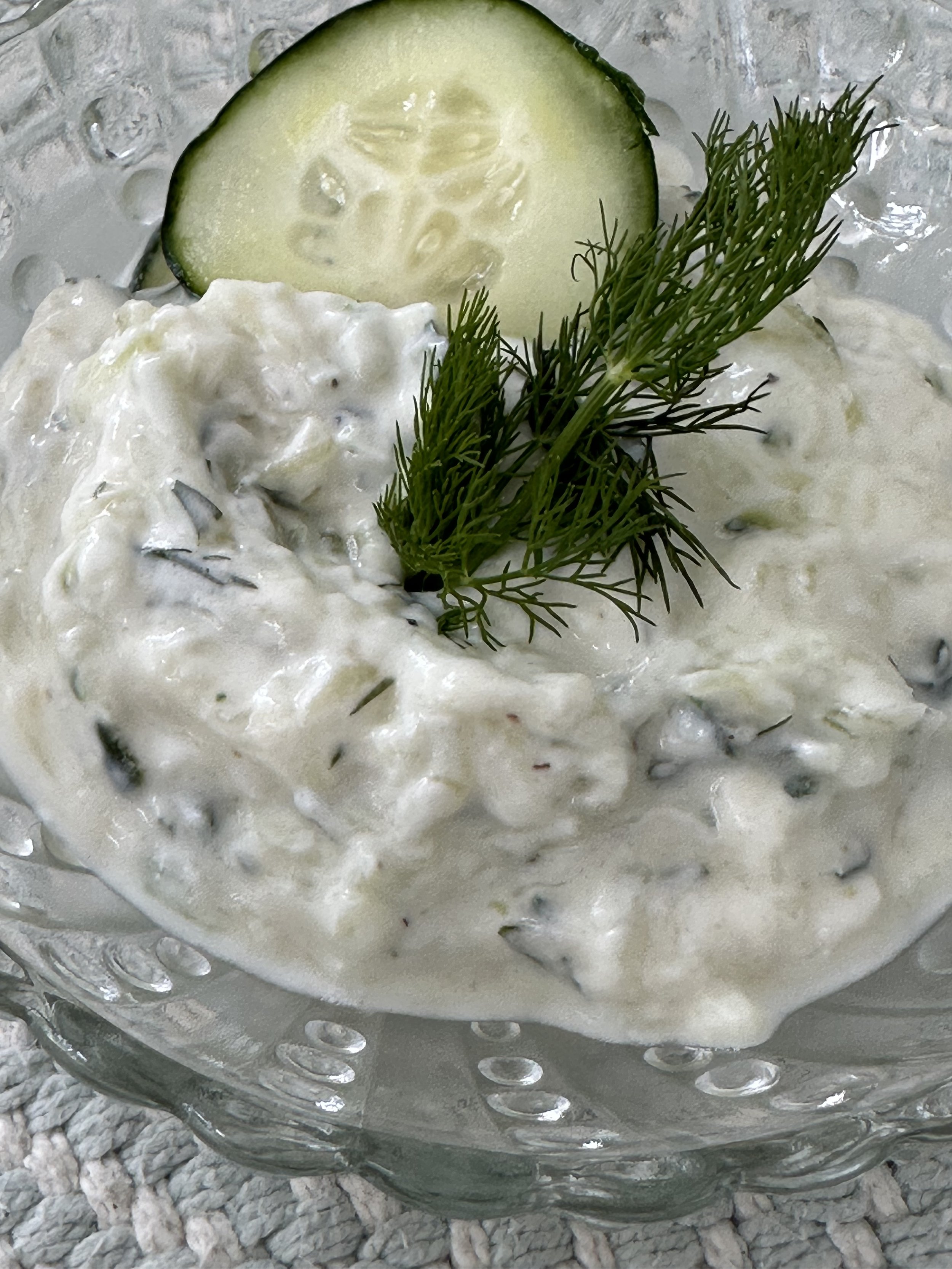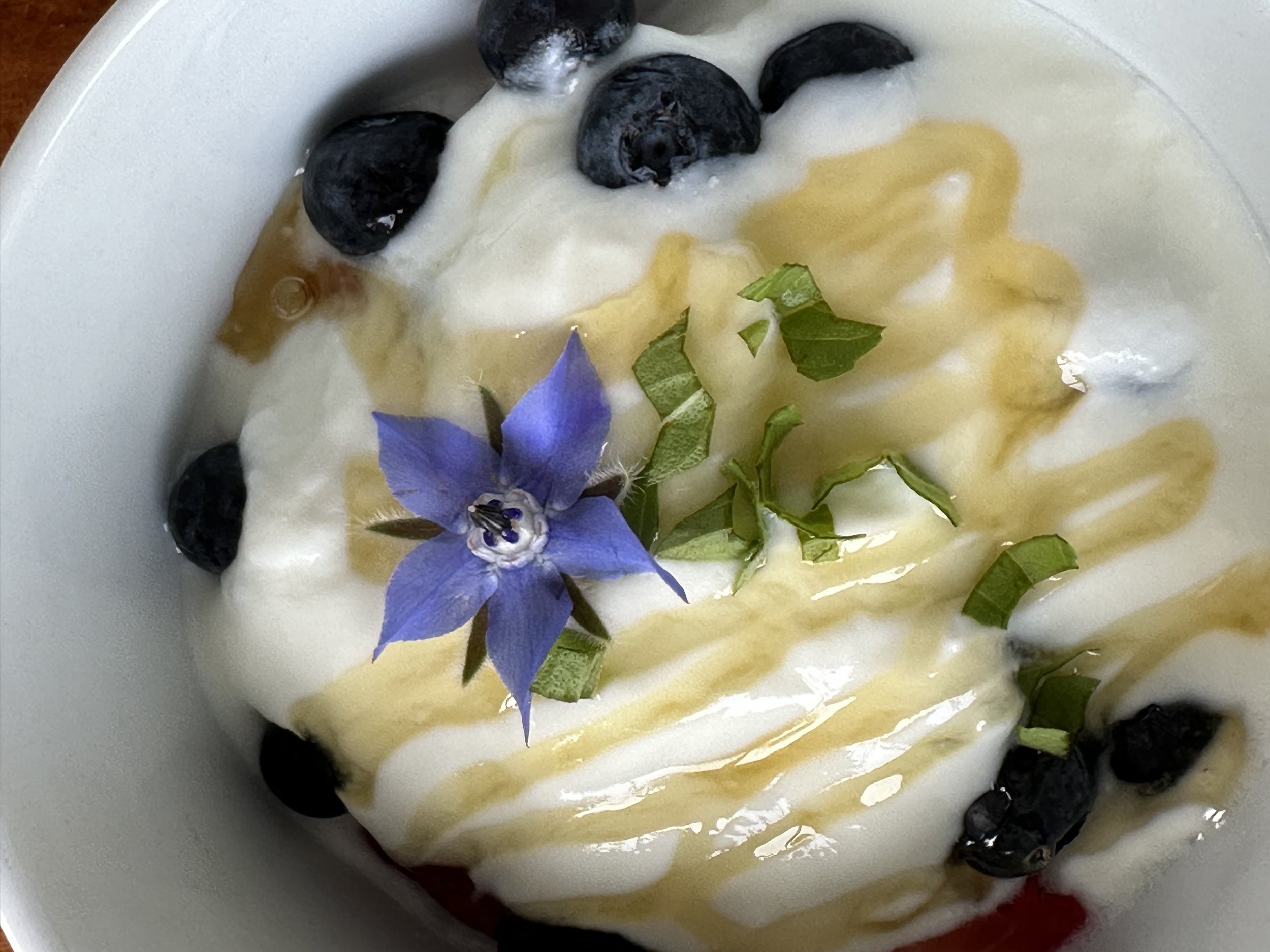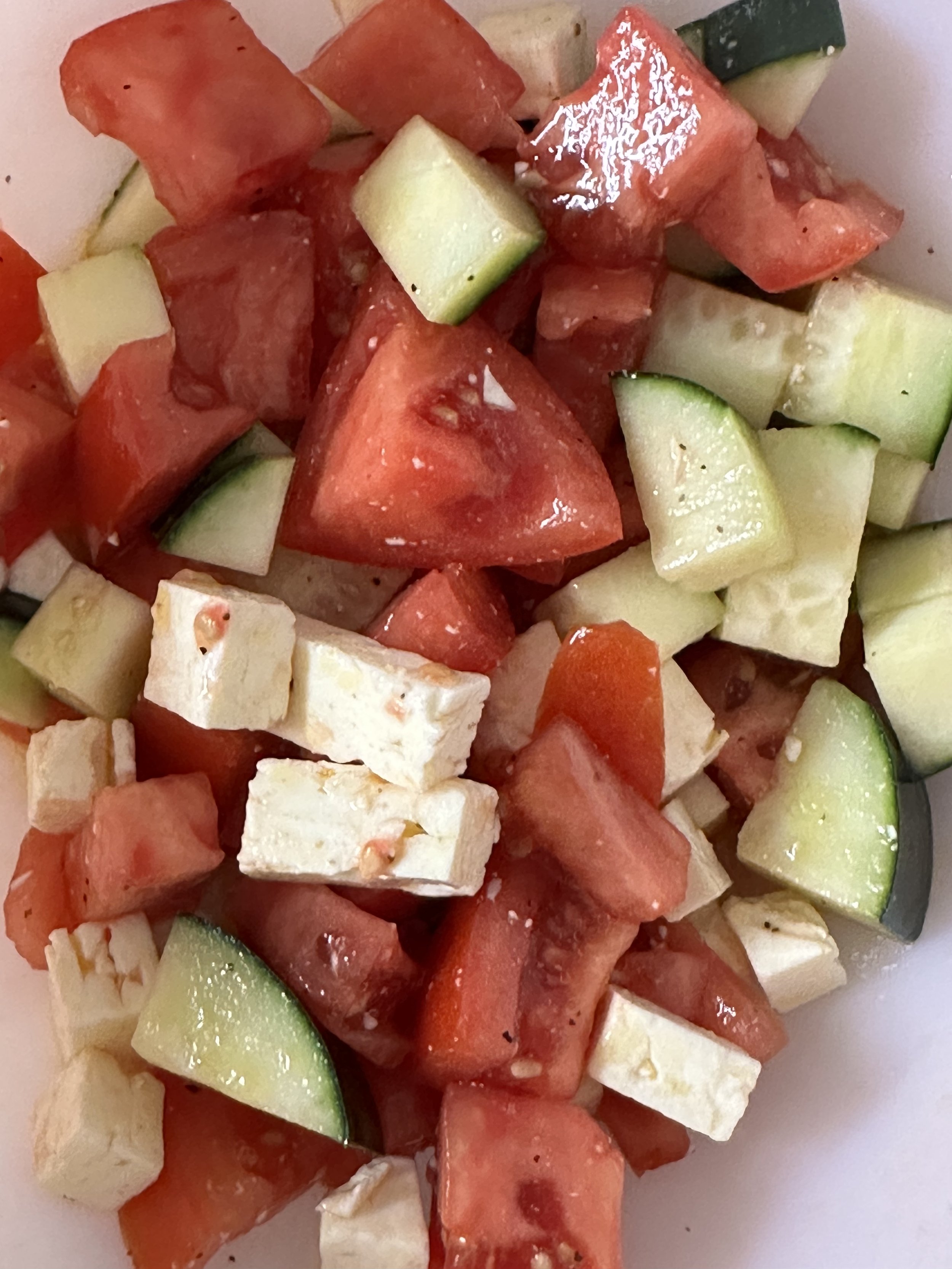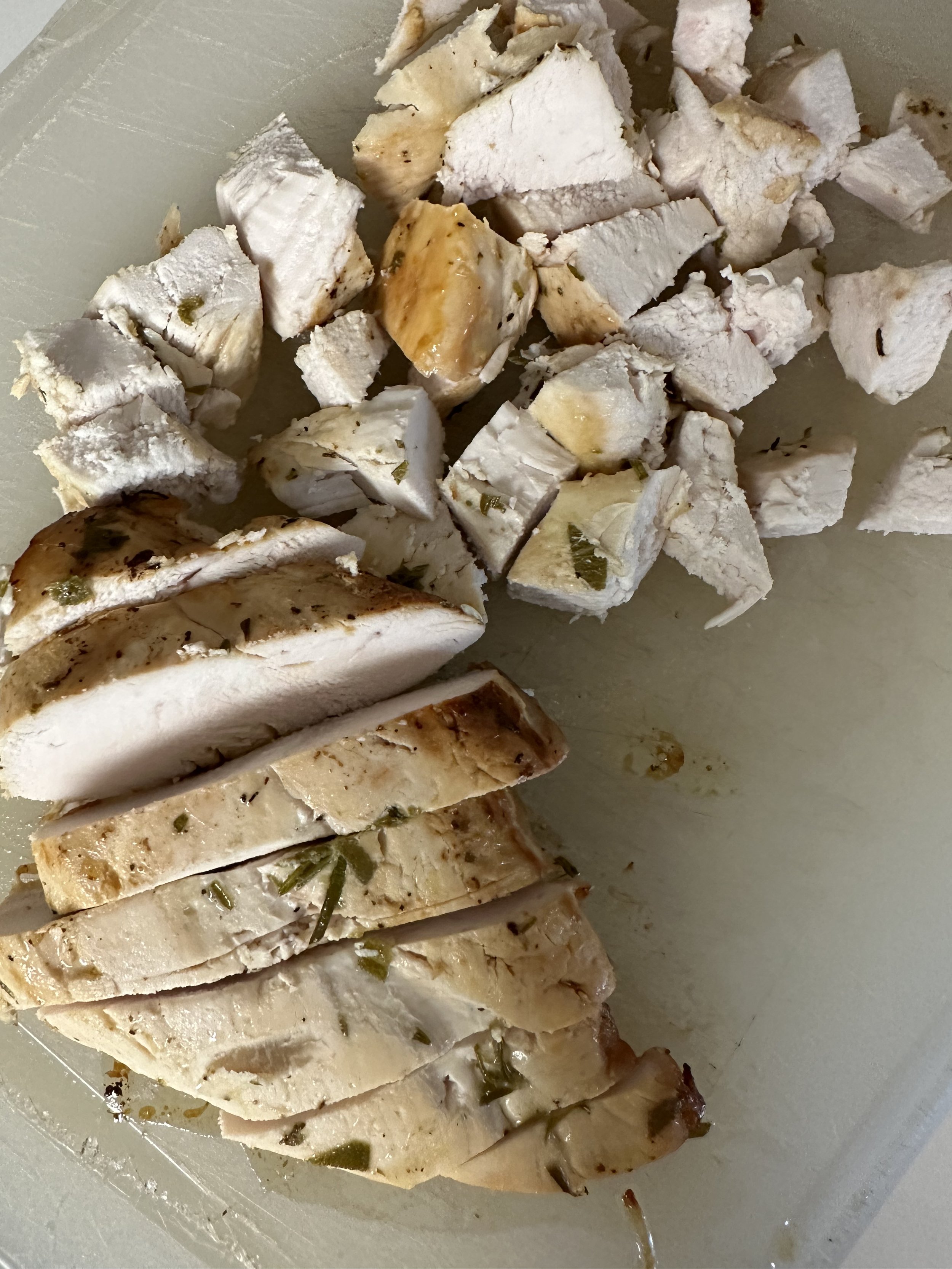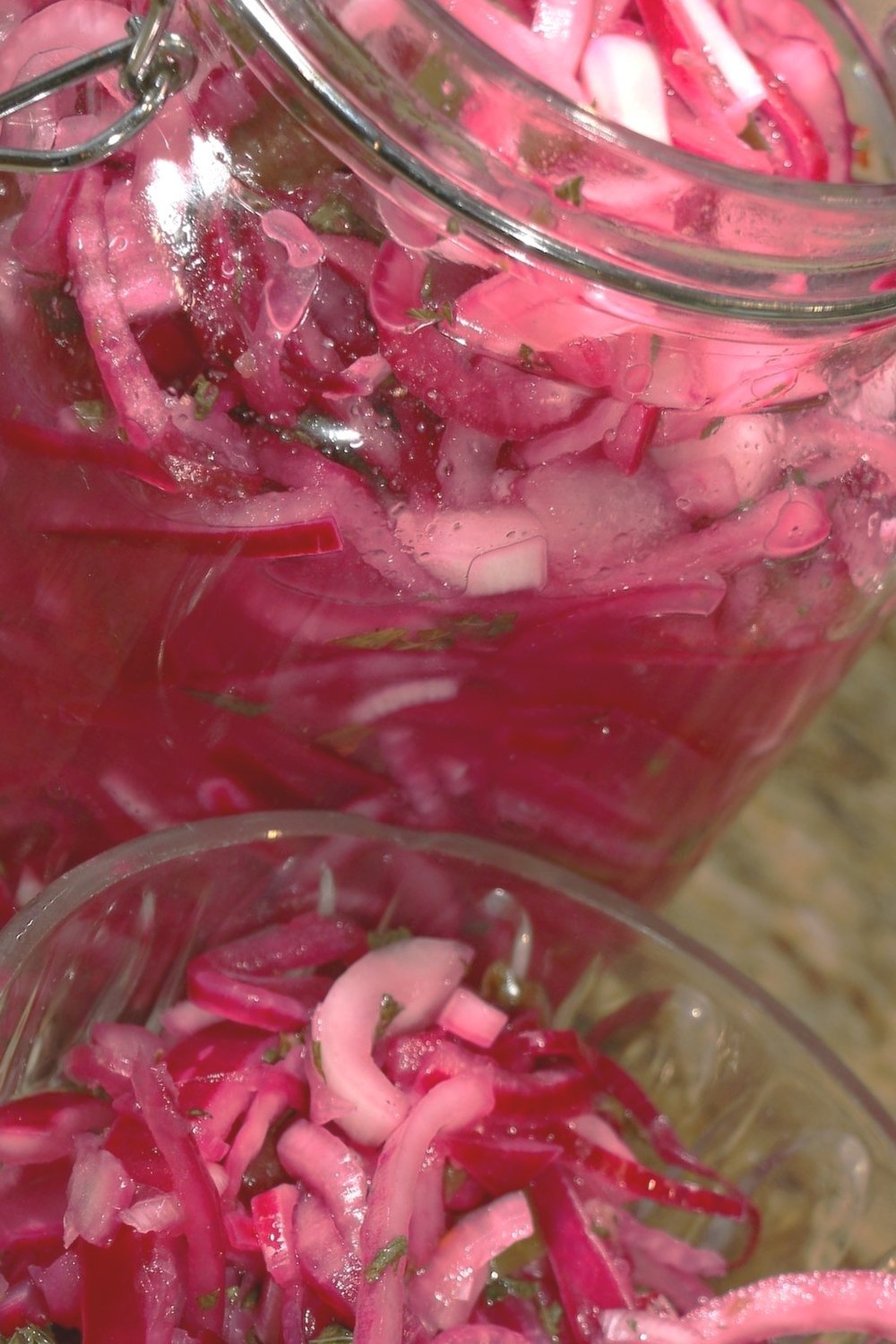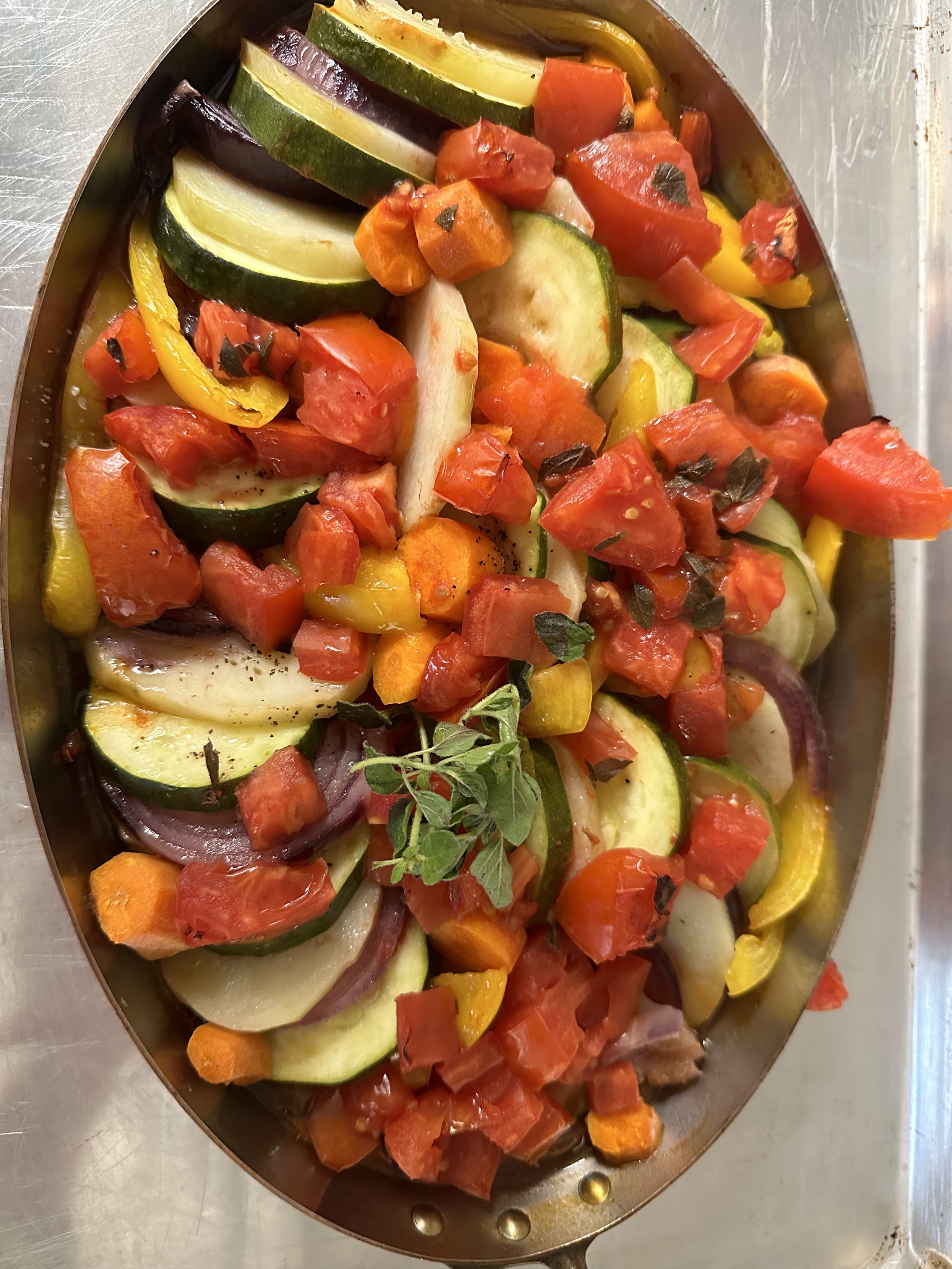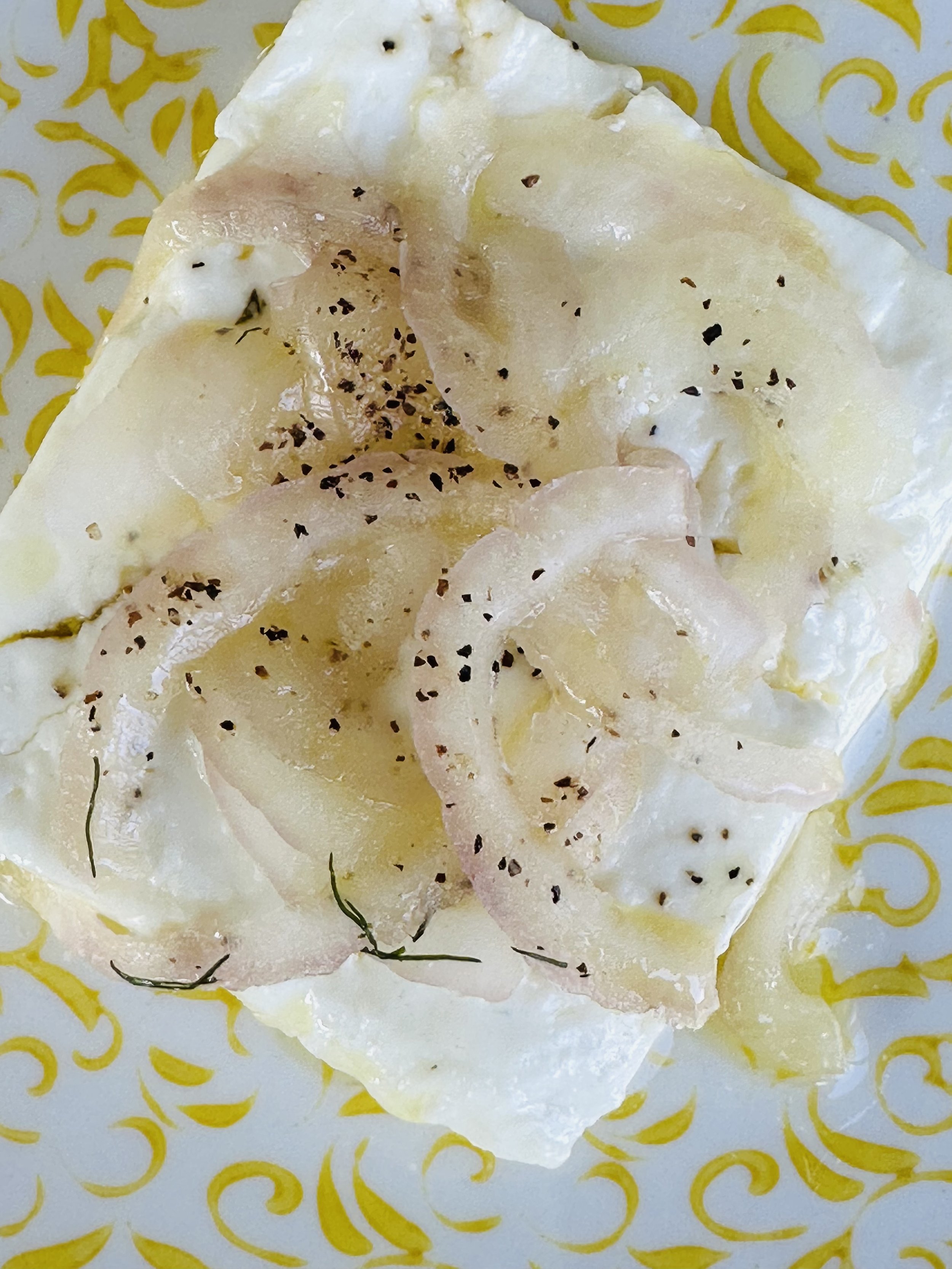Greek Odyssey - A Culture of Food and Dining
Click on the squares for the recipes.
On recent trip to Greece with fellow health and well-being coaches we were studying culture and its impact on well-being. While our studies were broad, I particularly enjoyed the culinary aspect. Food is cultural and has been since time immortal. Forty strong, our meals were a lingering 90 minutes. We sat down together at once to a set menu. We came hungry and always tzatziki with bread or crudites were set out. The food was prepared simply, the ingredients fresh, and it was marvelous. Conversation was light as we ate slowly enjoying the food and the camaraderie. We relaxed. One day, a shop of statuary, jewelry and curiosities was nearby and many made purchases while others dwelled in the shade on a nearby picnic table. Meals were always to look forward to. We were nourishing our thoughts and spirits as much as our bodies.
Upon my return, I spoke to George Glioumas, a Greek/American raised in Athens about Greece’s culture of food. “It’s a whole philosophy, a way of living,” he told me. The food is simple and there is a rhythm to cooking. Each week, certain dishes would be made. They are staples like lentil soup and briami. Certain ingredients are favored, including olive oil, oregano, lentils, Feta cheese, yogurt, vegetables and traditional breads. The evening meal he recalls from his Athenian childhood was lengthy, often two hours. The family was around the table, conversing about the day’s activities and enjoying the food slowly. George described the main dish being on one plate and the salad - maybe a Greek salad or sliced tomato salad - on a separate plate and fruit on yet another plate. He describes eating the meal as making one’s way around the circle. Fruit was a regular part of the meal. Salad was always on the side but served with the meal. Feta cheese would often be served simply as a slice. His mother spent a fair amount of time cooking. She found joy in giving her gift to the family. Now deceased, recipes written in her handwriting of the Greek foods she prepared daily is the only thing George has of hers.
Wherever one is in the world, whether we are dining alone, with one other or with a brood, we can create meaningful mealtimes daily. First, enjoy the company of others or oneself; no book in hand or TV/phone in the background. If one dines alone, one can still feel connected to others; that would be those that grew the produce, raised the chickens, drove the truck to the market, wrote the recipe or shipped the olive oil from abroad. Upon this realization of the immense humanity involved in making a humble jar of applesauce, a client once told me, “I will never look at applesauce the same.” Simple reflection of where our food, even packaged or mass produced, comes from makes us realize we are never really eating alone. We can be grateful to the many people that contributed to our meal.
We can also be more leisurely in our eating. We don’t need to spend two hours on a meal as the Glioumas family or 90 minutes as we did on my Greek voyage. Whatever time we have we can slow down, chewing thoroughly improving digestion. We can notice when we are full and not eat to excess. We can relax and likely extend any meal time by a few more minutes.
Cooking is one thing, dining is another. Part of the culture of food is as much the manner in which we eat as what we cook. Attention has been given recently largely by the slow food movement to slow food cooking. But we must not overlook our dining habits. What good is slow food cooking if the eating is hurried? With any food, that which is prepared or made at home, we can always turn our attention to how we enjoy it. This is as much a part of the culture of food as the cooking. Where does one dine; in the kitchen at the counter or in a separate room at perhaps a small table with a placemat, napkin and silverware? Is the environment pleasing? Peaceful? Where best allows us to slow down? Our daily schedule in Greece was full and precisely timed. The contrast of leisurely, relaxed and pleasurable meals enabled this rigor. And so it is in our daily lives.
By simplifying our cooking and grocery shopping we can enhance our dining experience. It is more important to dine in peace and joy than be stressed over a superfood dish that takes more time than one realistically has. Simplify and enjoy. This is as important to well-being as the very food we consume. And, by turning our attention to the culture of dining, it is only then we enhance our culture of food, in general.



